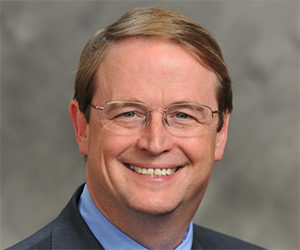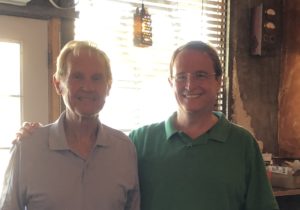 Mr. McBrayer threw the barista by ordering “a cup of coffee,” which was not on the menu at the Caffeinated Indian. Forty-three years after the eighth grade, I met my social studies teacher at the only coffee shop in Fulton, Mississippi.
Mr. McBrayer threw the barista by ordering “a cup of coffee,” which was not on the menu at the Caffeinated Indian. Forty-three years after the eighth grade, I met my social studies teacher at the only coffee shop in Fulton, Mississippi.
In 1975, Mississippi was ranked 50th in education and was some distance from being 49th. My school in Saltillo, about 30 miles west of Fulton, reflected our state’s poverty, racism and provincialism. Good teachers like Danny McBrayer fought uphill battles.
During study hall a group of us were discussing the quickest way to make our first million. Mr. McBrayer told us about driving a school bus, watching the sunrise each morning and seeing the sunrise change through the year: “I drive the bus to get paid, but without the sunrise it wouldn’t be worth it. Your job needs to be worth it.”
In a school that had recently integrated and was painfully divided, Mr. McBrayer went out of his way to spend time with African-American students like Ronnie Agnew, now the executive director of Mississippi Public Broadcasting.
 Checking in after four decades provides a lot to talk about. Mr. McBrayer knows almost everyone’s story. My biology teacher continues to believe that she could have married Elvis. Coach Wright was inducted into the Mississippi Football Hall of Fame. Our principal, who smoked a pipe, died of throat cancer. When I asked about my least favorite teacher, Mr. McBrayer said, “She just never liked poor kids – and that was most of our kids.”
Checking in after four decades provides a lot to talk about. Mr. McBrayer knows almost everyone’s story. My biology teacher continues to believe that she could have married Elvis. Coach Wright was inducted into the Mississippi Football Hall of Fame. Our principal, who smoked a pipe, died of throat cancer. When I asked about my least favorite teacher, Mr. McBrayer said, “She just never liked poor kids – and that was most of our kids.”
My old friends have tragic, predictable and amazing stories. One of the best athletes in school history is in prison. Two of the three sisters whose names rhymed died years ago – one with cancer and one in a car accident. Bobby got into lots of trouble, became a preacher and died. Willie has had a hard time: “His family fell apart and he has no legal income.”
Jimmy and Dorothy surprised everyone by not getting married. Dorothy ended up with a pro golfer’s cousin. Jimmy went through a divorce, but his ex-father-in-law liked him so much they went into business together. (I’m changing most of these names because I can’t read my writing and I’m afraid I may announce a divorce where there is only peace and harmony.)
Lori, on whom most of the eighth grade had a crush, married the quarterback and has done just fine. Joe, the shooting guard on the basketball team, is selling tires. Goony – a nickname I include because he must have left it behind years ago – runs his dad’s garage. Peachy (another has-to-have-been-forgotten nickname) is selling satellite dishes.
Craig, the top math student, is an engineer with NASA. Ken, the center on the basketball team, is a high school principal. Todd, who was a great best friend, teaches teachers in Nashville.
“Mr. McBrayer told us, ‘I drive the bus to get paid, but without the sunrise it wouldn’t be worth it. Your job needs to be worth it.’”
Mississippian William Faulkner said, “The past is never done with us. It isn’t even past.”
So much seems capricious – who lives, who dies, who gets a great job, who gets cancer, whose marriage falls apart, whose child is born broken. Telling who’s who is hard in middle school, and we do not get much better at it. Even if we could know exactly who someone is we cannot know how far they have come to get there.
Mississippi makes it clear that the playing field is not level. Some are born with two strikes against them. Some who seem a step behind have made up a mile. Some give themselves to lifelong friendships, honest work and caring for the hurting.
Those who create lives out of not much make it seem obvious that we should fill our prisons with politicians who lie to poor people while helping rich people keep their advantages. Some who sell tires make more important contributions than some with big corner offices. Some who teach 14-year-olds do more good than some preachers.
